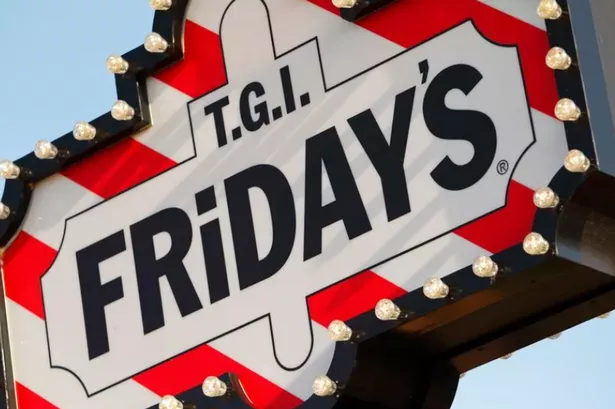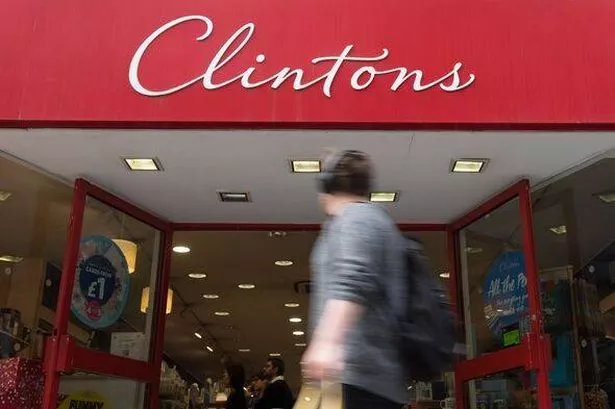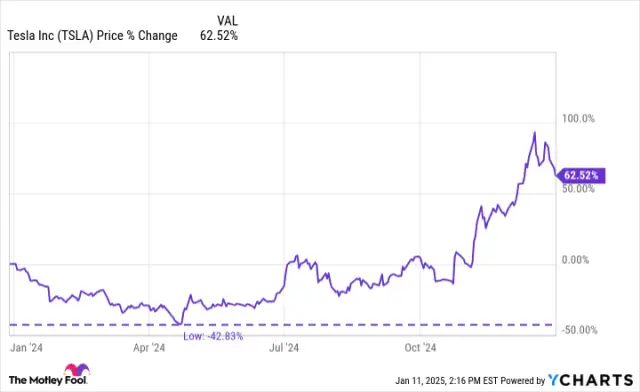
Law firm Hugh James played key role in deal saving more than 50 TGI Fridays restaurants
Cardiff legal firm Hugh James played a key role in the financing of a deal that has seen more than 50 TGI Fridays restaurants acquired out of administration. The firm’s banking and finance team advised Metro Bank in its debt funding to Breal Capital and Calveton UK to acquire 51 TGI Fridays venues from joint administrators, Daniel Smith and Julian Heathcote from insolvency firm Teneo. The lending offer for the rescue agreement, which has saved around 2,500 jobs, was led by Hugh James banking and finance partner Dominic Marshall, with support from Solicitors Angela Shendy and Olivia Evans. Read More : Latest equity deals in Welsh business Read More:Cargo boost for Cardiff Airport Mr Marshall said: “We are delighted to have supported our client Metro Bank in this significant transaction which ensures the safeguarding of around 2,400 jobs for the hospitality industry. To complete a deal of this scale in such a short period is a testament to the dedication and expertise of our team. We are proud to have represented Metro Bank as part of this critical rescue effort, which heralds a positive future for the TGI Fridays brand, its employees, and customers.” Andy Veares, managing director corporate and commercial at Metro Bank, said: “In transactions of this kind, time is absolutely of the essence and we couldn’t have done it without the support of the whole Hugh James team. TGI Fridays is a major employer and iconic brand so I’m thrilled that Metro Bank has been able to help fund this acquisition of 51 sites, protecting around 2,400 jobs and maintaining its loyal customer base.”

UK introduces pioneering bank transfer fraud refund scheme, caps claims at £85,000
After more than two years in the making and faced with last-ditch interventions from industry lobbying and ministerial pressure, the UK has unveiled a pioneering bank transfer fraud refund programme. As of Monday, the Payment Systems Regulator (PSR) mandates that over 1,500 banks, fintech companies, and other financial players are required to reimburse victims of authorised push payment (APP) fraud, imposing an upper reimbursement limit of £85,000 per claim, as reported by City AM. Companies facilitating the initiation and receipt of payments must equally share the mounting costs, with the majority of refunds expected to be resolved within five business days. Firms can only reject a refund on grounds that the customer displayed "gross negligence". However, this framework is restricted to transactions between UK accounts and excludes disputes regarding payments prior to the 7 October activation date. Under the new rules, payment entities have the discretion to impose a £100 excess for fraud claims, resulting in de facto exclusion of claims under £100 which accounted for almost a third of APP fraud cases the previous year unless firms choose to waive this fee. While not every institution plans to levy this charge against victims, they are obliged to clearly communicate their approach to affected customers. Moreover, those identified as vulnerable cannot be made to bear these excess charges. The PSR maintains that its regulations are designed to protect consumers from significant monetary losses, all the while fostering a vigilant attitude towards potential financial scams. David Geale, the PSR's managing director, announced on Monday: "Our new requirements will see all payment firms involved facing strong incentives to introduce more robust ways of identifying and preventing these scams from happening in the first place," He added: "Firms have already made a good start in making changes, and we expect to continue seeing new and innovative systems being rolled out to drive fraud out of our payment systems." The UK has now become the sole country to implement this type of mandatory reimbursement scheme, which aligns with other strategies aimed at curbing the rising levels of online fraud. Last week, the Treasury revealed its plans to provide banks with an extended period to delay and scrutinise payments where there are reasonable grounds to suspect fraudulent activity. Banks will now have up to four working days to either finalise or reject a payment, an increase from the current one-day window. On 25 September, less than a fortnight before the rules were due to be implemented, the PSR confirmed that it would reduce the scheme's refund cap from £415,000 to £85,000 following significant lobbying from the fintech sector and concerns raised by the Treasury. In a review of high-value scams, the regulator discovered that out of over 250,000 cases, there were 18 instances of individuals being defrauded for sums exceeding £415,000 in 2023, and 411 instances of amounts greater than £85,000. Despite these changes, companies continue to express concern about the potential negative effects of the regulations on both the payments industry and consumers. Fintech leaders have expressed concerns that adhering to the October implementation date will leave numerous companies unprepared to manage refund claims. In June, The Payments Association, a trade body with over 200 members, requested a one-year delay in implementing the rules. The industry has also warned that companies remain vulnerable to significant losses due to multiple claims submitted by organised fraudsters. The Payments Association advocated for a £30,000 cap, which it asserts would cover more than 95% of cases. Industry groups have further argued that the regulations do not hold technology firms accountable for the approximately three-quarters of fraud originating online. The PSR's reversal last month sparked outrage among consumer groups. Rocio Concha, director of policy and advocacy at Which?, stated that the regulator had "shamefully sidelined scam victims" and that lowering the cap "reduces the incentive for banks and payment firms to take fraud seriously". "We expect the regulator to closely monitor the protections that individual payment providers put in place to stop scams and be prepared to intervene and increase the threshold," she added. Both financial trade bodies and consumer groups have cautioned that sophisticated criminal syndicates may attempt to exploit the rules for new scams, either by impersonating banks offering refunds or claiming reimbursement money under false pretences. The PSR has committed to reviewing its scheme 12 months after implementation. While banks may choose to reimburse claims exceeding £85,000 voluntarily, victims who have been denied a refund can file a complaint with the Financial Ombudsman Service, which has a compensation limit of £430,000. Prior to the regulator's enforcement, there were attempts to increase reimbursement rates among banks. Many of the UK's largest banks had subscribed to a Contingent Reimbursement Model Code, introduced in 2019 and supervised by the self-regulatory body, the Lending Standards Board. Banks within that scheme, which is being phased out from Monday, refunded 73 per cent of customers' APP fraud losses in 2023, up from 23 per cent in 2018. TSB Bank initiated its own fraud refund guarantee scheme five years ago, which has resulted in it reimbursing 97 per cent of APP scam victims. A source close to the situation stated that TSB had advocated for all banks to adopt a similar system. After declaring an intention to legislate in May 2022, the government granted the PSR enhanced powers through the Financial Services and Markets Act last June to introduce its new regime. According to the banking trade body UK Finance, the total number of APP fraud cases surged by 12 per cent annually last year to 232,429. Reported losses to this type of scam amounted to £459.7m. However, some experts believe the actual figure is likely closer to £700m as approximately a third of scams are estimated to go unreported.

Cramer's Rapid Fire: "I'm not a fan of RIG"
View pictures in App save up to 80% data. CNBC It's that time again! "Mad Money" host Jim Cramer rings the lightning round bell, which means he's giving his answers to callers' stock questions at rapid speed. Anavex Life Sciences: "...It is, indeed, a spec." Sarepta Therapeutics: "...It is troubling, I don't want to be there." Viking Therapeutics: "I want you to sell Viking Therapeutics and roll it into Viking Holdings." Transocean: "No, no, no. I do not dig RIG." DuPont de Nemours: "I say you hold on to DuPont, it's very cheap versus the rest of the group." Sign up now for the CNBC Investing Club to follow Jim Cramer's every move in the market. Notice Inquiries for Cramer? Contact Cramer at 1-800-743-CNBC. Looking to explore the depths of Cramer's universe? Reach out to him! Mad Money Twitter - Jim Cramer Twitter - Facebook - Instagram Questions, comments, suggestions for the "Mad Money" website? [email protected] Additionally on CNBC

'Depressing' statement from award-winning bakery explains reason behind price increase
A Greater Manchester bakery that was recently named one of the best in the UK has shared a candid update about the challenges of running a business in the current financial climate with hospitality businesses under huge pressure. Long Boi's Bakehouse, which was credited with bringing "new life" to Levenshulme in The Good Food Guide's Britain's Best Bakeries 2025 list just last month, took to social media to explain the reason behind their recent price increases. The bakery revealed that the cost of ingredients has skyrocketed over the past five years, with chocolate prices rising by 232% and cheese by 255%. In a post on Instagram, the team wrote: "A few of the eagle eyed amongst you might've noticed that we upped all our prices in the bakery as of Tuesday, and just wanted to do a little post to a) publicly acknowledge that (don't want you all to think we're being sneaky) and b) explain why. "Tbh I don't think it'll be news to any of you that the cost of everything has gone WILD, but I thought I'd write up some actual examples of changes in ingredient prices since we opened - swipe for quite frankly a depressing AF read. "I actually can't believe chocolate was ever that cheap, what a time to be alive! ! ! "Basically, combine this with soaring energy prices, wanting to use only the best stuff in our bakes and making sure nine lovely staff are paid above Living Wage as standard (maybe the most important bit! ) - means that raising our prices slightly was the only way to keep on top of this balancing act. "Really hope you can all understand! Running a business is hella crazy right now, big love to all our fellow independents going through it." On the second slide of the social media post, reports the Manchester Evening News, the team revealed some of the stats behind running the bakery. For example, 10kg of butter has gone up from £39 in 2020 to £86.95 in 2025. As well as the steep dark chocolate increase of 232 percent and cheddar cheese skyrocketing from £17.08 for 6kg in 2020 to £60.48 this year, they shared how 16kg of strong flour was costing them £10.20 and is now £25.60, a 151 per cent increase. The neighbourhood bakery took over a disused site back in late 2020 and was brought to life by Pollen bakery alumnus Jenny Oakenfull. Manchester's Pollen was also named on The Good Food Guide list. Run by a team of solely women, the team at Long Boi's Bakehouse are dedicated to making food that is 'delicious, fun, interesting and exciting'. Ingredients are sourced from Organic North and R Noone and Son, while their flour comes from Wildfarmed who believe in the power of regenerative farming. Patrons and fellow bakers commented on the post to show their appreciation for the bakery's candidness about its economic challenges. One customer commented: "Thanks for sharing. Wild how small businesses have to announce and justify increases but Sainsbury's et al never do so." Another said: "Never seen trading conditions like this. Been baking for 18 years and in hospitality for 30. The latest NI contributions are the final nail." A fellow Sheffield bakery said: "We actually thought we were going mad when I said butter used to be under £40 - I had to check our old price lists to make sure I in fact wasn't going bonkers. "Hard to imagine how we've even come through these last 5 years. Lots of flat whites. "Love the transparency. The info in black and white really hits home even for those of us that are paying it too!". A supportive client shared an encouraging message: "Amazing transparency Jenny. I would keep coming even if you put up a million percent."

Clintons returns to profit with £8m after major store closures and cutting 300 jobs
Clintons has made a triumphant return to profitability after further store closures and the reduction of over 300 jobs. The renowned card retailer, which was acquired by Pillarbox Designs in March 2024, recorded a pre-tax profit of £8 million for the year ending 29 June, 2024, as highlighted in the latest accounts submitted to Companies House, as reported by City AM. This result marks a notable turnaround from Clintons' previous pre-tax loss of £5.3 million in the preceding 12 months and its substantial pre-tax loss of £16.9 million reported for the year concluding in November 2020. During the reported year, Clintons decreased its workforce from 1,757 to 1,415 employees as it continued to streamline its portfolio, cutting down the number of stores to around 170. The company's turnover also reduced, going from £96.5 million to £82.6 million. The Clintons board released a statement asserting: "Sales totalled £82.6m for the period and the directors feel this is a satisfactory performance, given the circumstances." Further detailing their strategy, the statement read: "The company has continued to close loss-making stores and the portfolio of retail stores is now down to approximately 170 stores." Tackling ongoing commercial challenges, the board noted: "Sales growth continues to be a challenge and the location of stores remains key to achieving this." Citing challenging high street conditions, they added: "The high street continues to be unpredictable and the company is seeing reduced footfall in the stores year on year." Looking ahead with a strategic focus, the statement concluded: "The company continues to monitor performance of the existing estate and to close the poor performing stores, which whilst impacting on turnover should improve profitability moving forwards." Clintons commented on their financial strategy, stating: "During the year the company entered into a restructuring plan that removed certain liabilities and reduced the level of business rates paid to March 2024." They noted the positive outcome of this move: "This had a significant impact on the profitability levels of the company for the year." The retailer also highlighted ongoing challenges: "Like many other retailers, the company continues to face significant cost pressure on wages given the increases in the national minimum wage."

Is it a good time to invest in Tesla stock before January 20?
January 20 is turning into a significant day for Tesla shareholders. Tesla (TSLA 8.04%) is one of the most volatile megacap tech stocks. While owning Tesla has been (mostly) a great decision over the long term, timing has often been critical. The company is working on several thrilling initiatives related to its electric vehicles and artificial intelligence (AI), yet I'm taking a cautious approach as an investor for now. In the following sections, I'll explain why January 20 might be a significant date for Tesla shareholders and discuss whether it would be wise to invest in the stock prior to that date. Analyzing the fluctuations in Tesla's stock price Let's break down Tesla's stock performance in 2024. View pictures in App save up to 80% data. Information sourced from YCharts. Between Jan. 1 and Nov. 4, 2024, Tesla stock was down 2.3% and trailing the S&P 500 by a wide margin. However, shares were actually down as much as 42.8% at one point during this period. Following Donald Trump's victory in the U.S. presidential election on Nov. 5, Tesla stock found new life. Between Nov. 4 and Dec. 31, shares gained 66.3%, and the company reclaimed its position in the trillion-dollar club. Tesla CEO Elon Musk emerged as a major Trump supporter during the final months on the campaign trail. Investors began to see the Trump-Musk alliance as a bullish indicator for Tesla. Although this might seem beneficial for Musk and the company, if you take a look at the stock's performance towards the end of the year, you'll notice that Tesla started to decline. As of now, shares have dropped 14.3% since Christmas Eve. At the end of the year, it's quite typical for investors to sell stocks, particularly those from companies that have seen significant profits in a brief timeframe. Additionally, Tesla has recently released its delivery and production numbers for its electric vehicle division for the fourth quarter, revealing that they fell short of Wall Street's forecasts. While Tesla's stock seems to be on a downward trajectory, I wouldn't be shocked if we witness a recovery in share prices as January 20 approaches. Let's explore the reasons behind this potential rebound. What events are taking place on January 20? On Jan. 20, President-elect Donald Trump will be sworn into office. Given Musk's ties to the soon-to-be president, I would not be shocked in the slightest if Tesla stock starts to see an uptick. Here's the reality: While Musk's relationship with Trump may bode well for Tesla -- especially as it relates to a friendlier regulatory environment for the company's autonomous driving ambitions -- any gains leading up to or immediately following the inauguration are driven by a narrative, not Tesla's fundamentals. View pictures in App save up to 80% data. Photo Credit: Getty Images Is it a good idea to buy Tesla stock before that date? Since the election, Tesla has fared much like a meme stock. Nothing about the company changed on Nov. 5. Nothing is going to change for it on Jan. 20, either. Investors don't know how the company's autonomous driving efforts will shake out or what regulatory changes the incoming administration will make in that area. If you're considering investing in Tesla stock at this moment, it's essential to have faith in the company's future plans regarding AI, autonomous vehicles, and robotics. If you do, the timing of your share purchase becomes significantly less important. Otherwise, investing in momentum stocks like Tesla is usually risky. If you have a low tolerance for risk, you may want to steer clear.